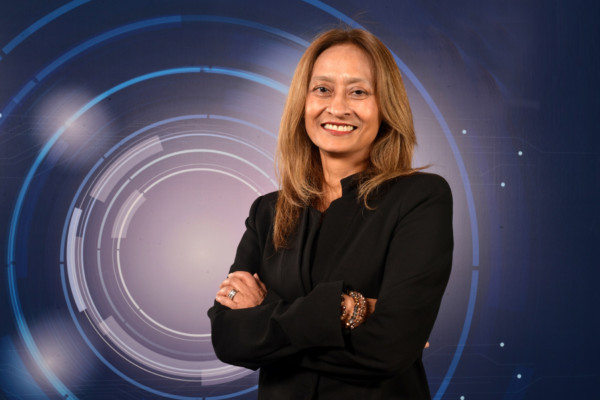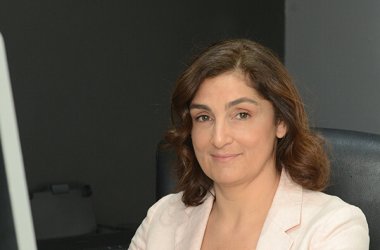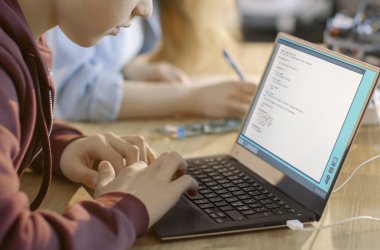
ICT offers an incredible platform for achieving the Sustainable Development Goals (SDGs). Having already reached an estimated 20 million people with initiatives such as Connect to Learn, Reunite and Ericsson Response, Ericsson does not plan to slow down any time soon.
According to Ericsson’s recently launched annual Sustainability and Corporate Responsibility (CR) report, Sustainability and CR are central to Ericsson’s core business and its commitment to the triple bottom line of responsible financial and environmental performance and socio-economic development. Its aim is to create positive impact for its stakeholders and its business while managing environmental, social and ethical risks. Conducting business responsibly is a top priority, and it takes a full value-chain perspective. The firm believes this approach delivers new business opportunities, greater efficiency, less risk, greater brand value, market leadership, employer attractiveness, and boosts long-term competitiveness.
By 2020, 90 percent of the world’s population will be covered by mobile broadband networks. This scale brings unprecedented opportunity to address global sustainable development challenges. In the Networked Society, Ericsson is a leading advocate of ‘Technology for Good’.
In 2015 the UN Sustainable Development Goals (SDGs) laid out a clear and united path to a more sustainable world, and ICT is a powerful lever to make that happen. The UN SDG invite global action by 2030 in three overarching areas; end poverty, combat climate change and fight injustice and inequality.
Ericsson continues to support the ten principles of the UN Global Compact and the UN Guiding Principles for Business and Human Rights (UNGP). In 2015, Ericsson advanced energy performance, delivering one of the most energy efficient platforms on the market, Ericsson Radio Systems. It is decoupling energy from traffic growth, and providing ICT-enabled solutions on the path to a low-carbon economy. In 2015, the company delivered on a target to reduce twice as much societal carbon emissions via its product and service offerings as it emitted from its own operations, in selected areas such as utilities, smart metres and transportation.
“At Ericsson, we channel our technology leadership and innovation to help create positive socio-economic and environmental impacts around the world. Together with our partners, we can play a positive role in every one of the Sustainable Development Goals, and can work to help achieve them in many countries across the region,” said Rafiah Ibrahim, Head of Ericsson Region Middle East and Africa.
Ericsson’s stakeholder engagement is an inclusive and continuous process aimed at building relationships and creating mutual understanding. It engages with its stakeholders in many fora and on a wide range of topics to enhance its ability to tackle shared challenges, and find common solutions. A robust stakeholder engagement approach leads to better management of CR risks and ensures a balanced approach to issues such as human rights, responsible sourcing, corruption, health and safety, conflict minerals, and handling of e-waste.
Responsible business practices are embedded into Ericsson operations to guide the way of working and to ensure management of risks. Employees acknowledge the Code of Business Ethics at the time of employment and periodically throughout the term of employment. In 2015 all employees were requested to acknowledge the Code; 99 percent of active employees completed the acknowledgement. The Code of Conduct, which applies to both employees and suppliers, is based on the UN Global Compact principles. It covers human rights, labour conditions, environmental management and anticorruption.
All employees are offered online training on sustainability, anti-corruption, human rights and other CR issues. In 2015, two new employee e-learning trainings were launched: one on Code of Business Ethics and Code of Conduct awareness, and another on human rights and business; the latter launched on Human Rights Day, Dec 10, 2015.
To avoid incidents and prevent work-related hazards Ericsson applies a risk-based approach that is based on transparency and inclusiveness. OHS is integrated with the Ericson Group Management System (EGMS) which is certified to the OHSAS 18001 standard. To fulfil its vision, Ericsson is rolling out a global programme aimed at zero major incidents. It is designed to increase OHS training and awareness of project managers, field-service personnel and sub-contractors, reinforce governance and inspections, and improve global management tools. It includes launch of a global incident tool, with 400 people across our business regions trained to handle incidents. The programme was piloted in the Netherlands, India and Egypt in 2015 with the global rollout continuing during 2016.
Ericsson intends to build on the momentum it achieved in 2015 so that everyone can benefit from the opportunities afforded by the Networked Society. As the SDGs move into implementation, it is even more important to work on advocacy around the benefits ICT can deliver. Ericsson is actively focused on the risk mitigation and reduction and positive change, enabled by ICT that is already evident on the ground. It will continue to work in public-private partnership and advocate Technology for Good to drive that change.





